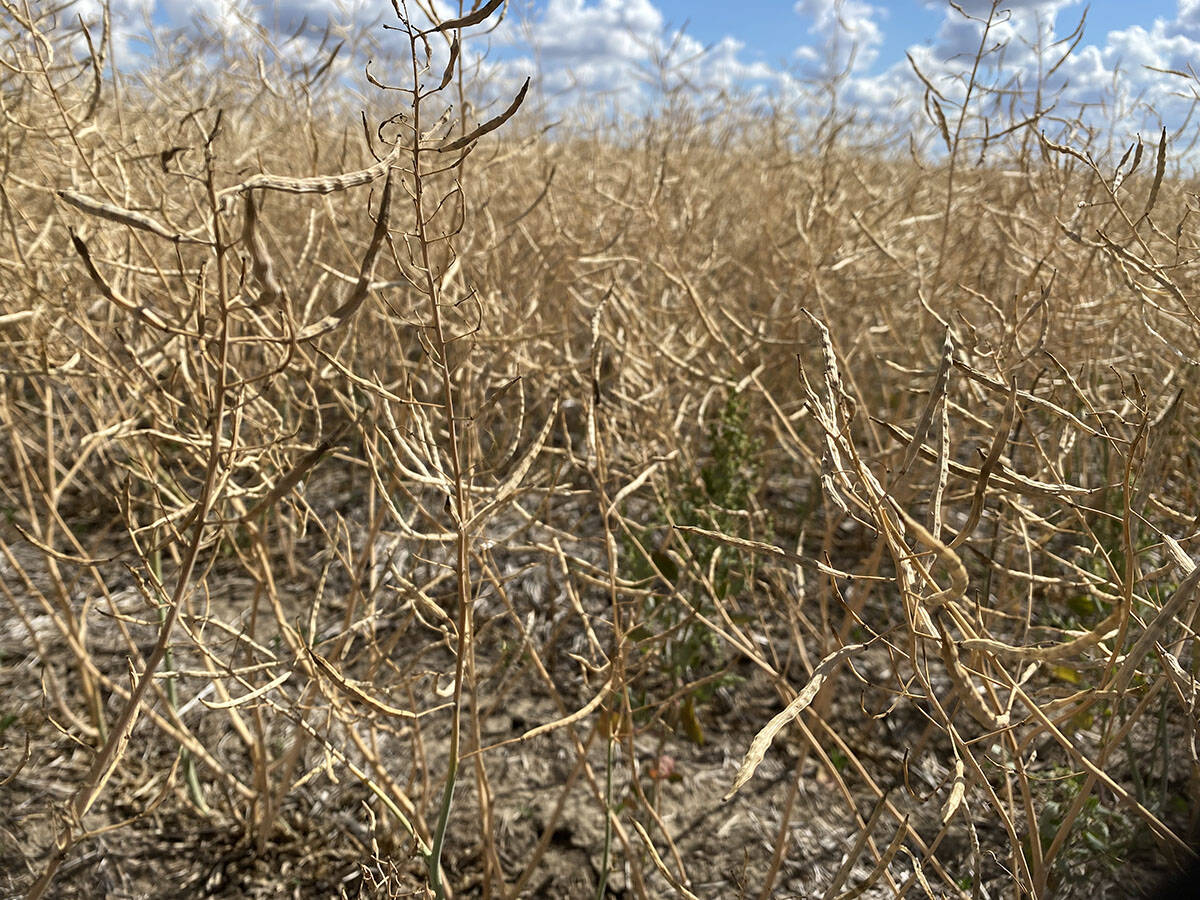Penner farms near Morris, Man., and is the Manitoba vice-president of the Western Canadian Wheat Growers Association. This comment was previously published in the Winnipeg Free Press.
Is Michael Ignatieff serious about rebuilding the Liberal party in Western Canada? He could make a good start by favouring a voluntary Canadian Wheat Board.
This policy change would help rebuild trust in his party and the economic argument is compelling.
An open and competitive market for prairie wheat and barley would provide a tremendous boost for the western economy, an incredible stimulus that, for once, would not cost taxpayers a cent.
Read Also

Crop insurance’s ability to help producers has its limitations
Farmers enrolled in crop insurance can do just as well financially when they have a horrible crop or no crop at all, compared to when they have a below average crop
A federally legislated monopoly, the wheat board buys wheat and malting barley from prairie farmers – and only prairie farmers. In the rest of Canada, farmers sell their grain to whomever they choose without committing a criminal offence.
It’s high time this was the case from coast to coast.
Liberals pride themselves on being non-ideological, moderate and centrist in their political philosophy.
They believe government should play a role in people’s lives to help them when necessary, but that its role should not be all-encompassing.
For Westerners, the Liberals’ position in support of a compulsory wheat board runs contrary to this tradition.
For years, Liberals have held fast to the extreme belief that only a government monopoly can do the job of marketing western wheat and barley. They’ve ignored the significant number of prairie farmers who simply wish to sell their own crops, as they do with the vast array of other grains marketed outside the CWB.
Liberals have also ignored an important economic reality. A lack of competition has cost farmers dearly over the years, particularly this past one, in the form of lower returns.
While many farmers watched from the sidelines during the last crop year the biggest bull market in their lifetimes in wheat and barley, the CWB once again captured below average prices for them.
Because of the size of the run-up, the wheat board’s weak performance cost farmers significantly more than ever before.
A comparison of final CWB pool returns to a simple average of the board’s own asking prices demonstrates the failure.
If the board had captured not premium but just average prices, farmers would have received a staggering $1.3 billion more this past year.
A side-by-side look at the simple average of an index of over 300 open-market elevators in the United States and the CWB’s flagship hard red spring wheat shows a negative $60 per tonne difference in final pool returns for the 2007-08 crop year.
On top of all this, the recently released 2007-08 CWB annual report showed a negative $226 million in “discretionary commodity trading” and a further loss of $89 million of farmers’ money in pricing options on futures markets.
Since the year 2000, moreover, after the board swore up and down that it would never rob one farmer to pay another, it started doing just that.
It transferred $37.4 million out of various wheat board pooling accounts into a contingency fund to cover losses in its various producer payment options.
An “only government bureaucracies can do the job” attitude has effectively alienated Ignatieff’s party from Western Canadians. Liberals hold only two seats across the Prairies because they are not being true to themselves; they are not taking moderate positions.
When it comes to the wheat board, they follow a hard-left line. On this issue, they might as well be the NDP.
A voluntary wheat board would go a long way toward changing the image westerners have of Liberals, one far more in tune with traditional Liberal values.
Giving farmers a choice is the reasonable and right thing to do. Continuing to force a monopoly on them, an act imposed in 1943 as a wartime emergency measure, is not.
Benefits would also flow in the form of new processing facilities. Pasta plants, flour mills and malting facilities would love to set up shop in the West if they could buy directly from farmers.
In January 2008, the Malt Industry Association of Canada made it clear that its members would not invest in Canada as long as the CWB monopoly was in place.
The largest malting company in Canada, United Malt Holdings, has echoed this sentiment and is trying to sell its Canadian facilities.
For farmers who want to use a government-backed wheat board, such an entity can play a role and help provide both competition and stability in the marketplace.
But a compulsory one goes too far. It violates the Canadian sense of fairness when westerners are compelled to participate and give up the rights to their property when easterners face no such similar requirement.
Ignatieff should reverse his party’s extreme position on a compulsory wheat board. It could be just the ticket to reviving the Liberal brand on the Prairies.















